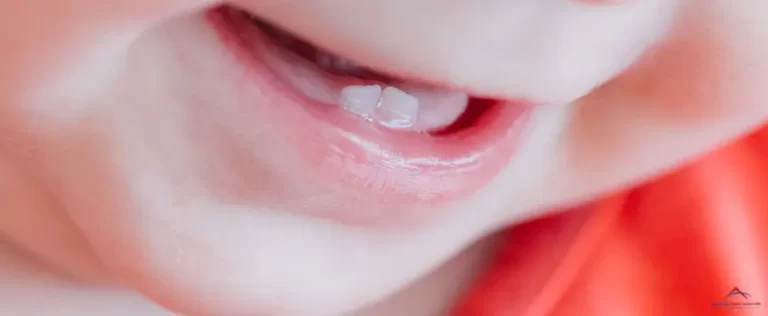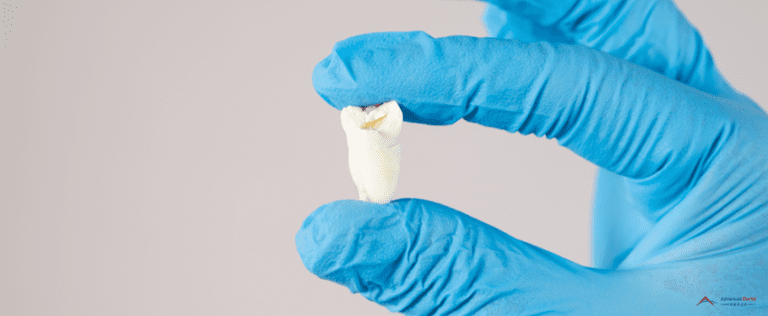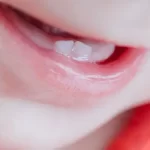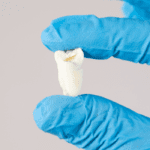Baby teeth, also known as primary, temporary, or deciduous teeth, typically start to fall out at the age of five or six to make way for adult teeth growth. However, some adults still retain one or more of their baby teeth. Here’s what you need to know about adults with baby teeth, their causes, and how they are treated.
How Do Teeth Normally Grow?
The first baby teeth often appear when a baby is six months old. Depending on the tooth type, they continue to grow up to 30 months or two and a half years after birth. Baby teeth begin to recede closer to the gum surface when a child is five or six years old. Their roots begin to disintegrate, causing them to fall out and allow adult teeth to grow.
Most people lose all their baby teeth between 12 to 14 years of age and have a set of 28 adult teeth. Wisdom teeth are the last four teeth that emerge between 17 and 21 years old.
What Are Adult Baby Teeth?
Some adults still retain one or more of their baby teeth, longer than they would normally be. According to statistics, adults with baby teeth range around 25% of our total population.
So the question is, how long do adult baby teeth last in adults? Well, they can last for many years but become dysfunctional over time.
How To Tell If Someone Still Has Baby Teeth
Size is the most noticeable difference between baby and adult teeth, and you’ll often see this when you compare normal adult teeth with adults with baby teeth pictures. Baby teeth are shorter than adult teeth and also whiter because they have thinner enamel.
Sometimes, baby teeth have rounder edges, while adult teeth have distinct bumps at the top that help them emerge through the gum. These bumps are called mamelons, and they get worn down over time.
Why Some Adults Still Have Baby Teeth
The lack of a permanent replacement for the baby teeth is the most common reason they are retained in adults. A person who doesn’t have an adult tooth that can erupt and replace the baby tooth is more likely to keep it until adulthood. The mandibular premolars are the most commonly missing adult teeth.
Tooth Agenesis
Tooth agenesis is the medical term for missing teeth, and it’s more common in females than in males. Some people may inherit it from their parents. Tooth agenesis has three subtypes:
- Hypodontia, where six teeth or less fail to develop
- Oligodontia, where more than six teeth fail to develop
- Anodontia, where all teeth fail to develop
Ectopic Eruption
Ectopic eruption is another reason for baby teeth in adults. It is where a tooth doesn’t follow its normal course when it erupts.
Impaction
The impaction of the adult tooth may also cause baby teeth in adults.
Dental Problems in Adults with Baby Teeth
Many adults with baby teeth have functional and healthy baby teeth. The most common complications they experience are losing their baby teeth or insufficient space for implant-supported partial or fixed crowns. If you were also wondering, “can adults get braces with baby teeth?” the answer is no. Braces will only cause them to get reabsorbed faster and cause more orthodontic issues.
Other complications that adults with baby teeth may experience include:
Misalignments
Most retained baby teeth are misaligned, which are more difficult to clean and can lead to cavities.
Losing retained baby teeth also causes the adult teeth surrounding them to shift and become misaligned. The teeth may move into the space created by the lost baby tooth and cause alignment problems.
Submerged Baby Teeth
Sometimes, retained baby teeth become fused to the bone and sink slowly into the surrounding gum tissues.
Gaps Between Teeth
Due to the small size of baby teeth, adults with baby teeth often have gaps between their teeth.
Bite Issues
The misalignment caused by baby teeth can also create biting issues and make chewing more difficult.
Treatment for Retained Baby Teeth
You should consult a dentist if you still have your baby teeth. They can determine if you need any treatment. Baby tooth extraction in adults may not be necessary if their roots and structures are sound. Other treatment recommendations dentists may offer are:
Modifications
Your dentist may recommend restorative modifications if you decide to keep your baby teeth. They may place a molded cap over their baby teeth to give them the appearance of an adult one.
Implants
Implants are the most popular way to replace retained primary teeth. However, they are not recommended for patients in their late teens since their jaws are still developing.
Space Closure
Extracting your baby teeth may be necessary if it’s causing too much crowding in your teeth so that they can be straightened. However, removing them without a replacement may cause more problems in the future, especially if you decide to have dental implants later.
Key Takeaway
Baby teeth are the first set of teeth a person develops. Most of them fall out during childhood and get replaced by adult teeth. However, some people retain one or more of their baby teeth throughout adulthood.
For some, baby teeth can cause minor problems. On the other hand, some people experience aesthetic issues, gaps between their teeth, misalignment, and problems with chewing.
They may keep their baby teeth if their dentists see that they are structurally sound or recommend treatment options like extraction, replacement, or orthodontics.
Keep your teeth healthy with Advanced Dental Group.
It’s best to consult dentists if you’re unsure what to do about your baby teeth. Our affiliate dentists in Arvada can provide personalized treatment plans for your baby teeth, whether you decide to keep them or have them extracted. They can also provide the modifications needed to make them look like adult teeth. Contact us today, and we’ll connect them to you as soon as possible.





